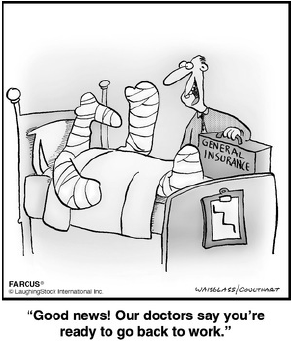Read the text below and answer the following
question based on it.
Lack of autonomy and respect threatens
'doctorness,' physicians say.
Doctors say that “doctorness”—the traditional way that
physicians practice medicine—is threatened, a new study
reported. These threats include the increasing complexity of
the health care landscape, combined with today’s
technology-enabled consumer, according to the “Truth
About Doctors” study conducted by marketing services firm
McCann.
The study found that the pressures of today’s world have
not only stolen time and autonomy from doctors, but have
simultaneously demanded they do more on someone else’s
agenda.
“The autonomous, entrepreneurial role the doctor has
played in the past has changed dramatically. In the last five
years, doctors have gone from being the lynchpin in the
health care system to a devalued cog in a larger wheel,”
said co-author of the study Hilary Gentile.
The research involved interviews with 450 doctors across
the United States.
Study co-author Laura Simpson added, “Modern-day
doctors have become trapped in a paradoxical standard
where they’re expected to forge a warm relationship with
patients, yet operate with the cold precision of a machine. In
our real-time, know-it-all culture, their authority and respect
are eroding right under their feet.”
In addition to the physician interviews, this research
revealed that nearly one-third of Americans between the
ages of 18 and 34 think they could be doctors with little or
no training.
“People think that because they can go on WebMD, they
understand what we understand,” said one physician quoted
in the report. “We have studied and seen so much, but
people just don't value or respect that anymore.”
“Of doctors who said that, on average, technology such as
WebMD and wearable devices are bad for patients, the
number one risk they cited of this technology is that patients
misdiagnose themselves (74%),” Ms. Simpson said. “Fiftyseven percent also said that patients don’t take the doctor’s
advice because they think they know better.”
Disponível em: http://www.mdlinx.com/medical-student/article/395#
Acessado em 5 de maio de 2016.
